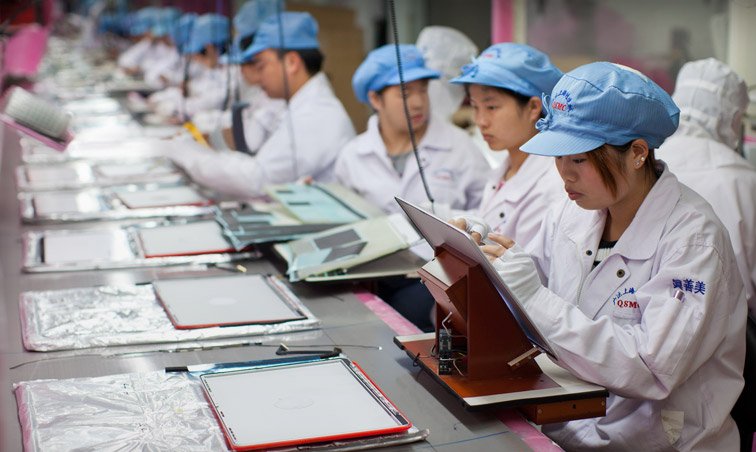Apple improving factory conditions in China, still no place you'd want to work

Working conditions at the Chinese factories operated by Foxconn, where vast amounts of the gadgets used around the world are made, including Apple's iPhone and iPad, are improving. Granted, that's going from truly terrible to slightly less bad, but it's movement and momentum in a direction decidedly better for the people who make the stuff that we use. That according to Keith Bradsher and Charles Duhigg, writing as part of the New York Times' iEconomy series.
When [Apple senior vice president of operations, Jeff Williams], returned from that March meeting to California, changes began. Among them, say people with firsthand knowledge, was the hiring of roughly 30 professionals into Apple’s social responsibility unit in the last year, which tripled the size of that division and brought high-profile corporate activists into the company. Two widely respected former Apple executives — Jacky Haynes and Bob Bainbridge — were recruited back to help lead the unit, reporting ultimately to Mr. Williams and the chief executive, Timothy D. Cook.
The iEconomy series itself seems to have changed as well. Apple isn't in the title of this article. Cynically, it's possible that an article about improvements doesn't benefit as much from the added sensationalism. Optimistically, it's possible that the NYT realized their focus on Apple was undermining the seriousness of the very real problems they're covering. (Though Apple enjoys the positive effects of the massive amount of attention they're given, and being singled out for criticism is the equal and opposite edge of that sword.)
Yet working conditions remain arduous, and problems multifaceted.
But last summer, fed up with the 25-hour train trip to see his family, Mr. Zhang moved to Chongqing and joined Quanta. He enjoys the better facilities and dorms. He frequently visits his parents’ home. But his take-home pay has fallen by nearly a third and the thought that his brother may have to drop out of school so he can help the family gnaws at Mr. Zhang. Instead of working in the factory each night, he spends hours playing an online game, Dungeon Fighter. “I’d like to work 80 hours a week,” he said.
It's a complex social and economic issue, and one that will take massive global, perhaps generational, changes to solve. Hopefully the improvements continue, and the effects ripple.
Source: New York Times
iMore offers spot-on advice and guidance from our team of experts, with decades of Apple device experience to lean on. Learn more with iMore!

Rene Ritchie is one of the most respected Apple analysts in the business, reaching a combined audience of over 40 million readers a month. His YouTube channel, Vector, has over 90 thousand subscribers and 14 million views and his podcasts, including Debug, have been downloaded over 20 million times. He also regularly co-hosts MacBreak Weekly for the TWiT network and co-hosted CES Live! and Talk Mobile. Based in Montreal, Rene is a former director of product marketing, web developer, and graphic designer. He's authored several books and appeared on numerous television and radio segments to discuss Apple and the technology industry. When not working, he likes to cook, grapple, and spend time with his friends and family.
